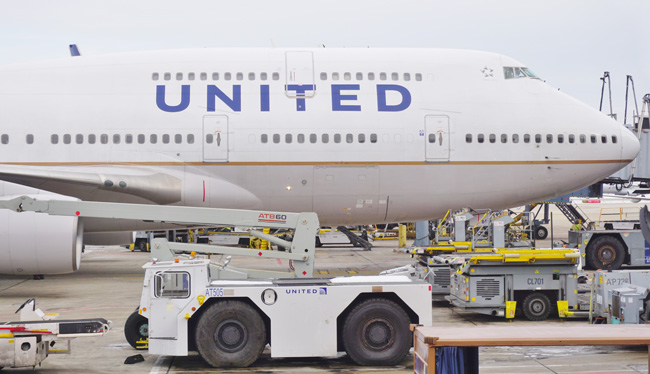
The actions of United Airlines on Sunday night and the outrage that followed their attempts to respond on Monday raised a lot of questions. How did the airline end up in that situation and what led them to forcefully remove passengers from the flight? There are also many questions for the authorities behind the controversial removal of a 69-year-old doctor, but that aspect seems to be the problem of the Chicago Aviation Police.
The decisions prior to that point lie solely on the airline, though, and are seemingly rare occurrences according to Business Insider. They spoke with aviation analyst Henry Harteveldt and concluded that the situation was indeed rare, but still needed to follow the proper procedures under United’s regulations. And according to Harteveldt, it did… up to the point when the police were involved.
According to Business Insider, United and other airlines have a process for the “re-accommodation” of passengers on overbooked flights or when unforeseen circumstances create the need for opening up seats on a packed flight. The process and criteria can be found in the Contract of Carriage document you agree to when you purchase your tickets — Rule 25 to be exact. It all starts with the asking of volunteers and offers to those passengers to give up their seats:
First, airlines will ask for volunteers — through email, at check-in, or at the gate. These requests for volunteers will typically come with anything ranging from cash to hotel rooms to a first-class upgrade on a later flight.
According to Harteveldt, there is no federal limit to the amount of money an airline can offer its passenger to deplane.
The passengers on United’s flight this Sunday were reportedly offered between $800-1,000 to give up their seats, but none of them accepted the offer. UA’s contract states a maximum rate of “400% of the fare to the Passenger’s first Stopover” or a max of $1,350 if there is none.
That leads to the next, very rare step for the airline involving involuntary denied boardings. To reach this point, passengers are compared and selected by a series of criteria related to the type of ticket they hold:
[The] airline’s decision is based on a passenger’s frequent-flyer status, the layout of his or her itinerary (whether the passenger has a connecting flight), the fare class of the ticket, and the time he or she checked in to the flight.
This means passengers who bought more expensive tickets have higher frequent-flyer status or checked in early are less likely to be bumped.
Passengers with disabilities and unaccompanied minors are least likely to be bumped from the flight and both Delta and American airlines follow similar procedures according to Business Insider. There are also several exceptions within the contract that would affect the eligibility for compensation for those denied involuntarily.
According to Harteveldt, the passenger at the center of Sunday’s United controversy was selected by this process and refused to give up his seat. The actions of the police might be in question, but the airline did have the right to remove him from the flight. In the end, it is “their aircraft and their seat” and you’re just paying for a rental to get to your destination. On top of that, Business Insider adds that the contract is “heavily tilted toward the protection of the airline’s interests” and likely protects them from situations like the one caught on camera this weekend.
It’s all good to know for the next time you decide to fly on any airline. Think about how you buy your plane tickets, when you buy them, and how early you check in after arriving at the airport. When it comes to possibly losing your seat due to questionable overbooking practices, these things matter and incidents like United’s, while rare, prove it.
(Via Business Insider and United)






